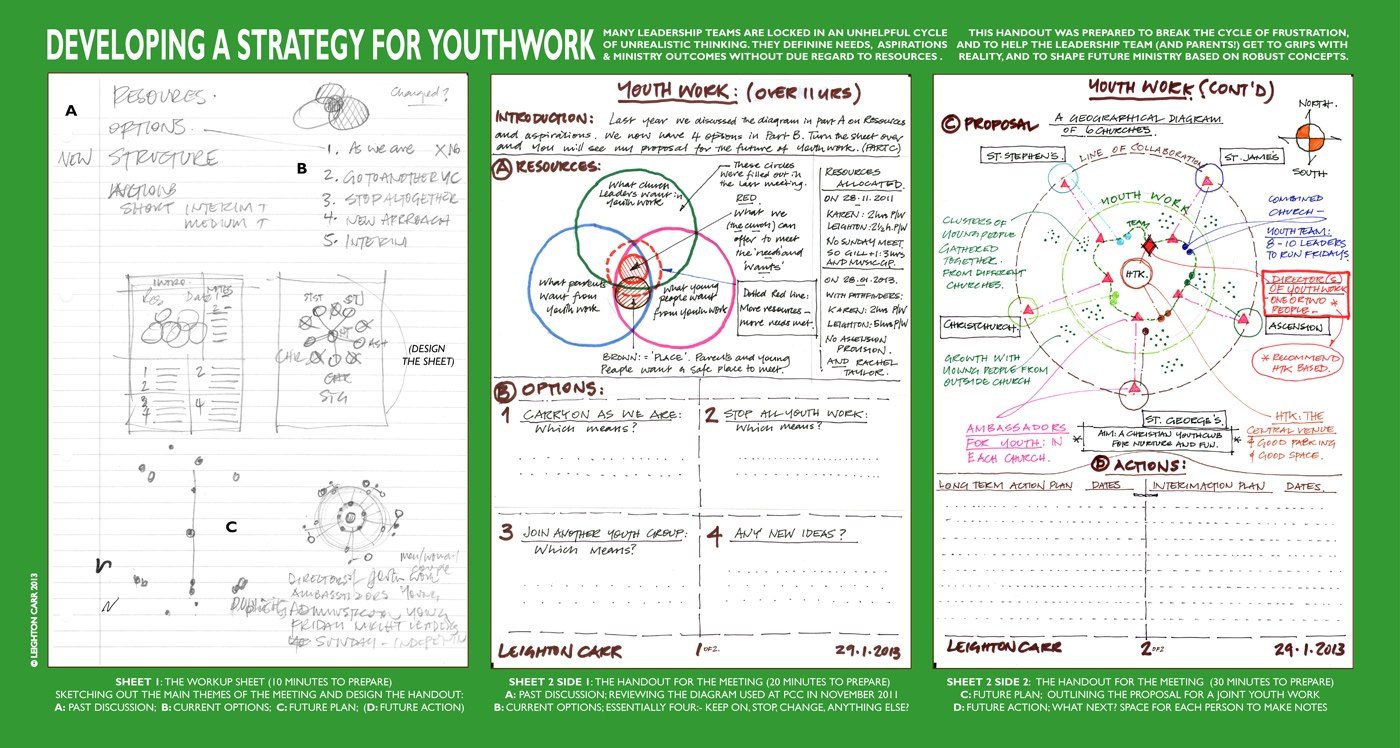Not able to put it off any longer, today was the first day back on the bike.\r\n\r\nThe car had been confiscated for the day so I had to be committed to sorting out the missing wheels on my Kona Jake (2010 version) if I was to meet my targets for the day. After an early start before 5am with the books it was VERY troublesome trying to find the wheels, tyres, tubes, levers, pump, grease (it’s been a long time since I put the bike into hibernation for the winter) and so on.\r\n\r\nStill, after two hours I was out of the door and off. I was VERY cold. I am VERY sore.\r\n\r\nBut what a route to work!!\r\n\r\nA privilege.\r\n\r\n
Community Mission in the Inner City
In 2009 I initiated a community mission in Easton. We called it ‘Easter Outdoors’. We carried out activities that grew our community engagement – from cleaning streets to celebrating Easter day outdoors with our multinational community: a combination of balloon twisting, BBQ halal burgers and celebratory worship.\r\n\r\nI wrote a report.\r\n
Desktop Leadership
Reading a book on leadership doesn’t make you a leader any more than reading a book on painting makes you a painter.\r\nIt’s all worked out in the doing.\r\n\r\nLearning to paint is a good analogy. At first its slow going with many disappointments. This blue doesn’t go with that red, this paint doesn’t sit easily on that paper. And when the first painting is finished it can be an embarrassment. It’s hard to believe that one day a beautiful painting will be possible.\r\n\r\nIsn’t that like the beginnings of an inexperienced leader? Launching into a new situation with plenty of theory under the belt but not enough experience, or the wrong sort, can lead to embarrassing situations and missed opportunities.\r\n\r\nWhat’s lacking is the intuitive element that grows through experience, the confidence to handle new situations not found in books.\r\n\r\nIt’s not wrong to be as prepared as possible. Only don’t think that all the information gained from a desktop study can be a substitute for facing the matter head on.\r\n\r\nSo. Inexperienced. Exposed. Inadequate. At sea. Embarrassed?\r\n\r\nBe thankful! For that’s experience, and that’s where intuitive leadership comes from.
Transformation: Hop Barn Weston, turning a wreck into a home (7)
Transformation: Hop Barn Weston, turning a wreck into a home (6)
What to do today?
At the beginning of the week, coming off a full and challenging weekend, I wonder how to plan the week? With so many possibilities and necessities, duties and concerns, I reflect on this:
\r\n
“Cheered by the presence of God, I will do at each moment, without anxiety,\r\n according to the strength which He shall give me,\r\n that work that His Providence assigns me.
\r\n
I will leave the rest without concern: it is not my affair.
\r\n
I ought to consider the the duty to which I am called each day as the work that God has given me to do,\r\nand to apply myself to it in a manner worthy of His glory,\r\n that is to say,\r\n with exactness and in peace.
\r\n
I must neglect nothing; I must be violent about nothing.”
\r\n
Fenelon
\r\n
Or as Jesus said of Mary, “She has done what she could”
Ammerdown
Tough Times?
It is an error – one which I so often excuse in myself – to believe that our uncontrolled emotional outbursts are a natural reaction to events around us or within us, a justifiable response to Tough Times that beset us and oppress us without our bidding and outside our control.\r\n\r\nBut this is not an appropriate Christian response to Tough Times. F D Maurice spoke about it this way:\r\n\r\n“God has brought us into this time; He, and not ourselves or some dark demon. If we are not fit to cope with that which He has prepared for us, we should have been utterly unfit for any condition that we imagine for ourselves.\r\n\r\n In this time we are to live and wrestle, and in no other.\r\n\r\n Let us humbly, tremblingly, look at it, and we shall not wish that the sun could go back its ten degrees, or that we could go back with it.\r\n If easy times are departed, it is that the difficult times may make us more in earnest: that they may teach us not to depend upon ourselves.\r\n If easy belief is impossible, it is that we may learn what belief is,\r\n and in whom it is to be placed.”\r\n
And so in the words of the Teacher:\r\n“Whosoever puts his trust in the Lord shall be safe”\r\nProverbs 29:25
A Robust Strategy for Youth Work
After nearly four years of trying and not succeeding to establish a strong youth work we need a new direction.\r\n\r\nCollaboration across churches is the way forward, but it’s hard enough trying to work with a handful of leaders in one church let alone twenty or more leaders across six churches in four parishes. Recognising the need doesn’t always overcome parochial interests.\r\n\r\nWhat’s needed is a clear structure that limits uncertainty and allows, even compels, leaders to buy into it because it’s so possible and so obvious it would be churlish not to.\r\n\r\nThe key words to describe it will probably have to include simple, multi-level, accessible, empowering, flexible yet strong.\r\n\r\nThis is my offering. let’s see how it goes down tonight!\r\n\r\nTo zoom in further click here\r\n\r\n
Language problems in Leadership
The operation of much church leadership betrays a simplistic understanding of the inherent complexity of the interaction of the personal gifts of the leader. Nowhere is this more clear than in the use of language and the different effects that the same words from the same person can have on the same people.\r\n\r\nOn two occasions recently I noticed this problem and it gave me cause to stop and think about my own work.\r\n\r\nThe first was during a presentation on the nature of evangelism. Halfway through a perfectly reasonable explanation of some system or other I found myself wondering where the Gospel had gone? I understood the words being said but I didn’t see the connection between Jesus and his world. It’s not that the presentation was entirely wrong. The words were right and clear but at the same time wrong and obscure. I realised that the presentation helped me think as a leader but not as an evangelist or as a pastor.\r\n\r\nBeing alerted to my own discomfort in this situation I then came across an even more stark example in a private conversation about a sensitive topic. The other person used extreme and dramatic language to sustain their argument, to the point where my naturally middle-of-the-road preference in these situations was misread as careless and lukewarm.\r\n\r\nWhen challenged over this extreme use of language the other person argued that it was important to use hyperbole to motivate a congregation to action. It was about leadership.\r\n\r\nAnd there we were. Stuck on a fundamental difference over holistic ministry.\r\n\r\nIn most churches the ‘leader’ is actually also (and better called) the ‘pastor/teacher’, and hopefully this person ‘does the work of an evangelist’ as Paul encouraged Timothy to do. So that’s four roles in one person as a minimum.\r\n\r\nSo how does hyperbole used in the leader role work in other roles of teacher and pastor?\r\n\r\nBadly!\r\n\r\nThe teacher who uses extreme language to teach teaches without balance, and doesn’t help the process of learning, which after all is what teaching is about (most teachers in church wrongly measure their own quality by how well they perform their function rather than how well people receive and learn, but that’s a whole other subject).\r\n\r\nInstead, the teacher who uses extreme language teaches others to do the same – and there we have cults and sects of all sorts in the making.\r\n\r\nThe pastor who uses extreme language looses credibility as someone who is able to deeply listen and weigh up personal issues.\r\n\r\nInstead, the pastor who uses extreme language teaches his congregation that the language of extremes is the context in which personal relationships are enacted.\r\n\r\nSame person. Same words. Same hearers. Different outcomes.\r\n\r\nAnd it’s inevitable if the ‘Leader’ doesn’t think carefully about how one role impacts on another.\r\n\r\nAs ever, Eugene Peterson puts it much more eloquently:\r\n\r\n”descriptive language is about … and motivational language is for getting people to do things they wouldn’t on their own initiative… but personal language, to express, converse … is the language to and with; love is offered and received, ideas are developed, feelings are articulated, silences are honoured.\r\n
[This is] the language of children, as lovers, in prayer, as poets. And it is conspicuously absent when we are running a church.”

